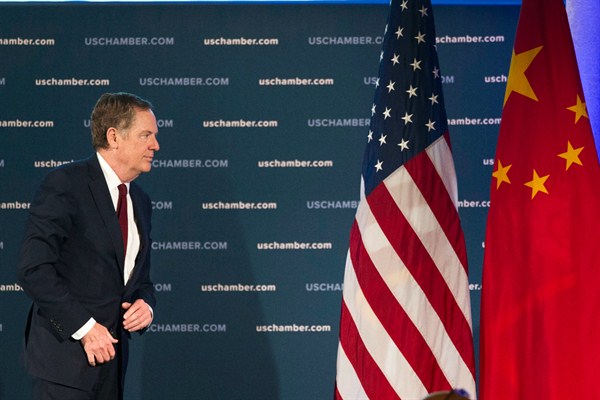It’s déjà vu all over again. Where’s the beef? And speak loudly, but forget the stick.
Those were among the clichés that came to mind during the Trump administration’s China trade policy gyrations over the past few weeks. Almost exactly a year after Commerce Secretary Wilbur Ross announced the results of a “herculean” effort to get a deal with China to boost U.S. exports of energy and agricultural goods, and six months after Ross announced another set of deals purportedly worth $250 billion in increased American exports of natural gas, soybeans, beef and pork, the White House released a joint statement in which China again promised “meaningful increases” in imports of U.S. agricultural and energy products. The chief White House economic adviser, Lawrence Kudlow, claimed the Chinese had agreed to increase American exports by $200 billion, but China denied that there was a commitment to any specific dollar figure.
In exchange for these vague—and recurring—promises, Treasury Secretary Steven Mnuchin announced that the administration would not impose tariffs on up to $150 billion in Chinese exports aimed at Beijing’s unfair trade practices. But after pushback from Congress and some in the American business community, harder-line administration officials and eventually President Donald Trump himself claimed that the threatened tariffs could still be imposed if Ross does not come back from China next month with a good enough deal—whatever that might be.

